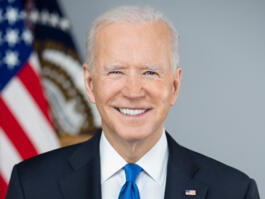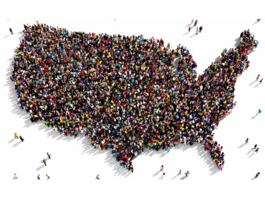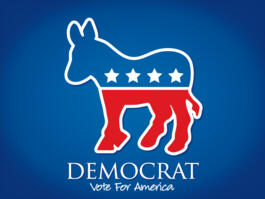Trump -- Once and Future King? By Patrick J. Buchanan
"I don't know if he'll run in 2024 or not. But if he does, I'm pretty sure he will win the nomination."

"I don't know if he'll run in 2024 or not. But if he does, I'm pretty sure he will win the nomination."

A week after President Joe Biden stirred controversy by saying China has “different norms” toward human rights, half of voters view Biden’s China policy as worse than former President Trump’s.

— While the 2020 presidential election saw a record volume of absentee votes cast, not all states made it equally accessible.
— Eased absentee voting rules contributed to higher voter participation rates.
— With higher turnout, President Joe Biden’s performance still tracked closely with Hillary Clinton’s state-by-state results in 2016 — he just performed slightly better across the board.
— All told, the sharp increase in absentee voting in 2020 wasn’t disproportionately beneficial to either presidential candidate.

President Biden has promised billions of dollars in new federal spending to fight homelessness, but most Americans believe the problem is primarily a responsibility of state and local governments.

The nomination of Neera Tanden to be President Joe Biden’s director of the Office of Management and Budget appears to be in trouble, but most voters still believe the president’s nominees for office deserve an up or down vote on the Senate floor.

Today's environmental activists are so hostile to capitalism that they end up killing animals they want to protect.

The Rasmussen Reports Immigration Index for the week of February 14-18, 2021 fell to 86.0, down from 88.3 two weeks earlier. This is the lowest it’s been since the Immigration Index began in December 2019, and the second consecutive survey in which the index has reached a new record low. The Immigration Index has been under the baseline in eight consecutive surveys. Since the week before the November election, the index has fallen by nearly 15 points, indicating voters are looking for tighter immigration control from President Biden’s administration.

President Biden is reportedly contemplating “major infrastructure investment” as part of his legislative agenda, but most Americans don’t think that’s a job for the federal government.

Last week, I visited South Florida for four days, and what a shock: Everything was open. The beaches, the hotels, the restaurants (with some sensible safety and social distancing restrictions). The classrooms are full.

"What is America's mission?" is a question that has been debated since George Washington's Farewell Address in 1797.

Thirty-four percent (34%) of Likely U.S. Voters think the country is heading in the right direction, according to a new Rasmussen Reports national telephone and online survey for the week ending February 18, 2021.

Most voters support passage of the $1.9 trillion COVID-19 relief package despite concerns that Congress has filled the bill with expensive items that have nothing to do with coronavirus.

In surveys last week, this is what America told Rasmussen Reports...

Less than a month after President Joe Biden’s inauguration, most voters believe the Democrat is “a puppet of the radical left” and not the moderate “nice guy” he was portrayed as being during the election campaign.

You expect a certain number of stumbles from a new administration. President Joe Biden's incoming team professed dismay at having to create a coronavirus vaccine distribution program "from scratch," due to its predecessor's handling of the situation, and this week, Biden complained that "we didn't have" a vaccine when he "came into office." He promised to deliver over 1 million a day.

Is President Joe Biden prepared to preside over the worst U.S. strategic defeat since the fall of Saigon in 1975?

According to the federal Centers for Disease Control and Prevention, 42% of Americans are obese, but a much lower percentage actually consider themselves overweight.

In the wake of former President Donald Trump’s acquittal in his second impeachment trial, Republican voters still overwhelmingly favor Trump as their party’s leader.

— In the second impeachment trial of his presidency, former President Donald Trump was acquitted by the Senate. Seven Republicans joined 50 Democrats in voting to convict Trump.
— The sole Republican running for reelection in 2022 who voted to convict Trump was Sen. Lisa Murkowski (R-AK) — she has a reputation as a political maverick.
— Democrats will be targeting a few open-seat contests next year in the Senate, specifically North Carolina and Pennsylvania, where retiring Republicans have been censured by their local parties.
— For now, Senate Democrats probably won’t see much electoral backlash from their votes, though Democrats representing Trump states may feel heat in 2024.

With New York Governor Andrew Cuomo accused of concealing facts about COVID-19 nursing home deaths in his state, most voters want Congress to investigate whether public officials are accurately reporting coronavirus cases.